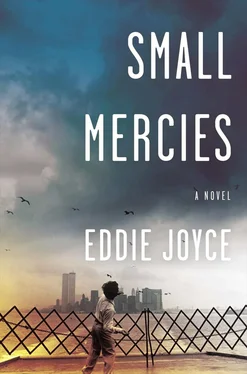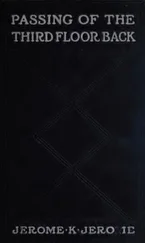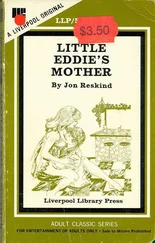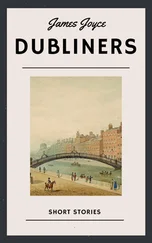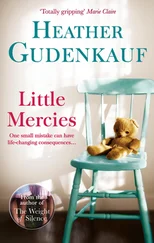He wandered to the ferry, the most natural thing in the world. What he’d always done. He watched the first tower crumble from the ferry’s rear deck, people crying and praying and screaming around him. He took the train, walked to his childhood home, his hand cramped from gripping his briefcase. The front door was open.
A small crowd in the living room: Mom, Dad, Tina. Only when he saw everyone else’s eyes did he realize he was also crying. His mother hugged him and over her shoulder he saw Franky sidle in from the kitchen. Thank God.
His mother said something about Bobby. Missing, not accounted for. But Bobby’s firehouse was in Brooklyn, well out of harm’s way. No. They’ve heard nothing. He looked around the room and there was still hope in everyone’s eyes, behind the tears. Then he found his father’s eyes. They were dull and certain. He moved his head from side to side, swiftly, slightly, a gesture for Peter alone. His mother started sobbing into his shoulder.
We owe the dead our sins.
He’d spoken to Bobby on the phone the night before. He was holding his own daughter, a few weeks old. He called Bobby, who was out with Franky, watching the Giants game. They were always closer, even though he and Franky were closer in age. Bobby, the youngest, but the first to be a father. He stepped outside the bar to talk to Peter.
“It’s amazing, bro, isn’t it? It’s amazing. It’s not like anything else in the world.”
“Yes, it is. It’s unbelievable.”
Peter brought a hand down to his daughter’s thimble of a chin.
“Fucking Giants.”
“What?”
“Fucking Giants defense sucks.”
“Go enjoy the game, Bobby.”
“Thanks, bro. I love you.”
The line went dead before Peter could respond.
Peter wipes his eyes. Maybe he needs a change, a fresh start. Maybe it’ll do him good to be in a city without ghosts, to be someplace where his past isn’t a ferry ride away, where he doesn’t feel anchored to someone else’s ethos. Maybe Chicago is exactly what he needs.
Out in the darkness of the harbor, an unseen ferry sounds its horn, whether in agreement or objection, Peter can’t tell.
Chapter 5 THE SERVANTS’ QUARTERS
On Wednesday morning, Michael drives Gail to the ferry. Gail offers to take the train, but he’s playing golf at Silver Lake with an old firefighter buddy and the ferry is more or less on the way.
“Two birds, one stone,” he says and this makes her smile, because Michael loves his little sayings, loves how the wisdom of the ages can be distilled into a sentence. And she loves how he still makes excuses to be around her, even if it’s only twenty minutes in the car, neither of them really talking. She looks out the car window on the way; the sky is a medley of grays, has been this way all week.
He wants to play golf in this drizzling misery?
No, he wants to sit in a cart and drink beer. Laugh with a like-minded soul. No matter. Don’t try to understand everything your husband does. Sometimes she has to remind herself of her own advice.
She wants to tell Michael in the car about Tina meeting someone. About Wade. She won’t get a better chance. She should tell him. He would dismiss her wilder anxieties. He would tell her that Tina and the kids aren’t moving across the country. He would remind her what Tina always says: that she wouldn’t have survived the last decade without Gail. He would kiss her forehead, tell her that all will be well. She should tell him.
But she doesn’t. He’s happy this morning and she doesn’t want to ruin that. This time of the year is rough. Hard not to think about Bobby with everything you do: the basketball tournament, St. Patrick’s Day, Bobby Jr.’s birthday. So she sits there and says nothing.
The car winds its way down Victory Boulevard toward the ferry, passing a mishmash of storefronts: Mexican food joints, dollar stores, a joyless beauty parlor half-filled with black women getting their hair done. A few newly refurbished shops dot the otherwise grimy tableau: a wine bar, an antique shop, a coffee place called The Good Bean. The latest doomed attempts at gentrifying St. George. In six months, the graffiti-filled shutters on these new places will be lowered for good and their bewildered owners will hurry back across the harbor to the safety of Manhattan.
Michael stops the car in the drop-off zone. He kisses Gail good-bye and leans across the vacant passenger seat after she leaves the car.
“Tell big shot I said hello.”
“I will. Take it easy with the beers. You’re driving. Plus, you got the Leaf’s Saint Paddy’s Day party later.”
His face brightens at the reminder. She married a nice Italian boy and turned him into a donkey. With a little help from the FDNY.
“Love you.”
“Love you too.”
The car pulls away from the curb. Gail blows on her hands, tries to coax some warmth into them. She walks into the ferry terminal, a sudden loneliness her only companion.
Despite the cold, she sits outside on the ferry, on the side that faces the Verrazano. She prefers this side: less crowded, no tourists. The sight of the bridge always stirs something in Gail. She’s spent her entire life within ten miles of this bridge, on one side or the other. Some days this makes her proud, some days sad. Today it’s a little of both, and there’s nothing inconsistent about that, nothing at all. Most of the things people take pride in are a little sad, if you thought about it. Pride is sad. To take pride in something is to proclaim its importance, and really, how many important things are there? How many could there possibly be?
A light rain starts to fall and a few errant drops find Gail, pushed under the overhang by a haphazard wind. She should go inside, but she doesn’t. The rain and the cold suit her melancholy. The slow, steady progress of the ferry echoes a commensurate rise in the foulness of her mood. This annual pilgrimage to see Peter is a fool’s errand. The ostensible purpose is to collect Peter’s entries for the Cody’s pool. Bobby used to do it every year, as a way of keeping his older brother in the family’s orbit. Maybe have a corned beef sandwich and a pint of Guinness to celebrate St. Paddy’s.
But with each passing year, the lunch has become more and more of an obligation to Peter. Gail knows that’s how he feels, sitting across from her, not bothering to hide his BlackBerry, ticking off the minutes until he can pay the bill, hurry back to his office, and cross another item off his to-do list. She isn’t even sure whether he feels obligated to her or the ghost of his brother. She doesn’t care. She’s sick of her oldest son humoring her attempts at maintaining some semblance of tradition.
She probably would have cancelled if she didn’t have to tell Peter about Tina. She’s wasted the last few days, not told a soul, convinced herself that telling Peter first made the most sense. He’s the reasonable and clearheaded one. He’ll understand, maybe even help her figure out a way to tell Franky.
No one else can help her tell Bobby. She has to do that alone.
After the ferry docks, Gail shuffles off with the rest of the crowd and makes her way up to the Bowling Green station. The wind at the southern tip of Manhattan is ferocious. People sway as they walk. An African man selling umbrellas on the sidewalk struggles to return his sample to a usable state. A flock of middle-school kids scream in joy at their own helplessness. The detached pages of a newspaper rise from the street and hover for a moment before being whisked into Battery Park.
She doesn’t mind the wind. It keeps her head down, her gaze lowered, preventing her from trying to see what is no longer there.
* * *
Читать дальше
